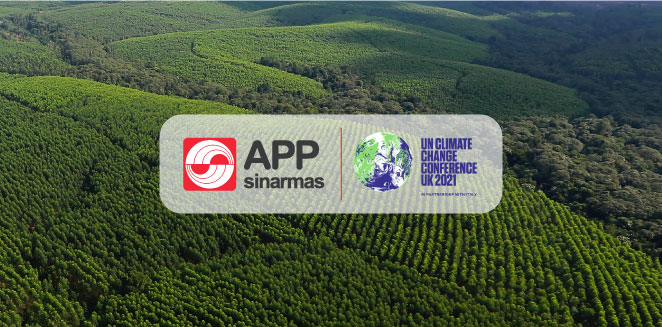
With the world is recovering and getting on its feet again, discussions toward solutions for environmental challenges also continues, as the UN Climate Change Conference COP 26 week took place on November 1-12, 2021 both in Glasgow and Jakarta.
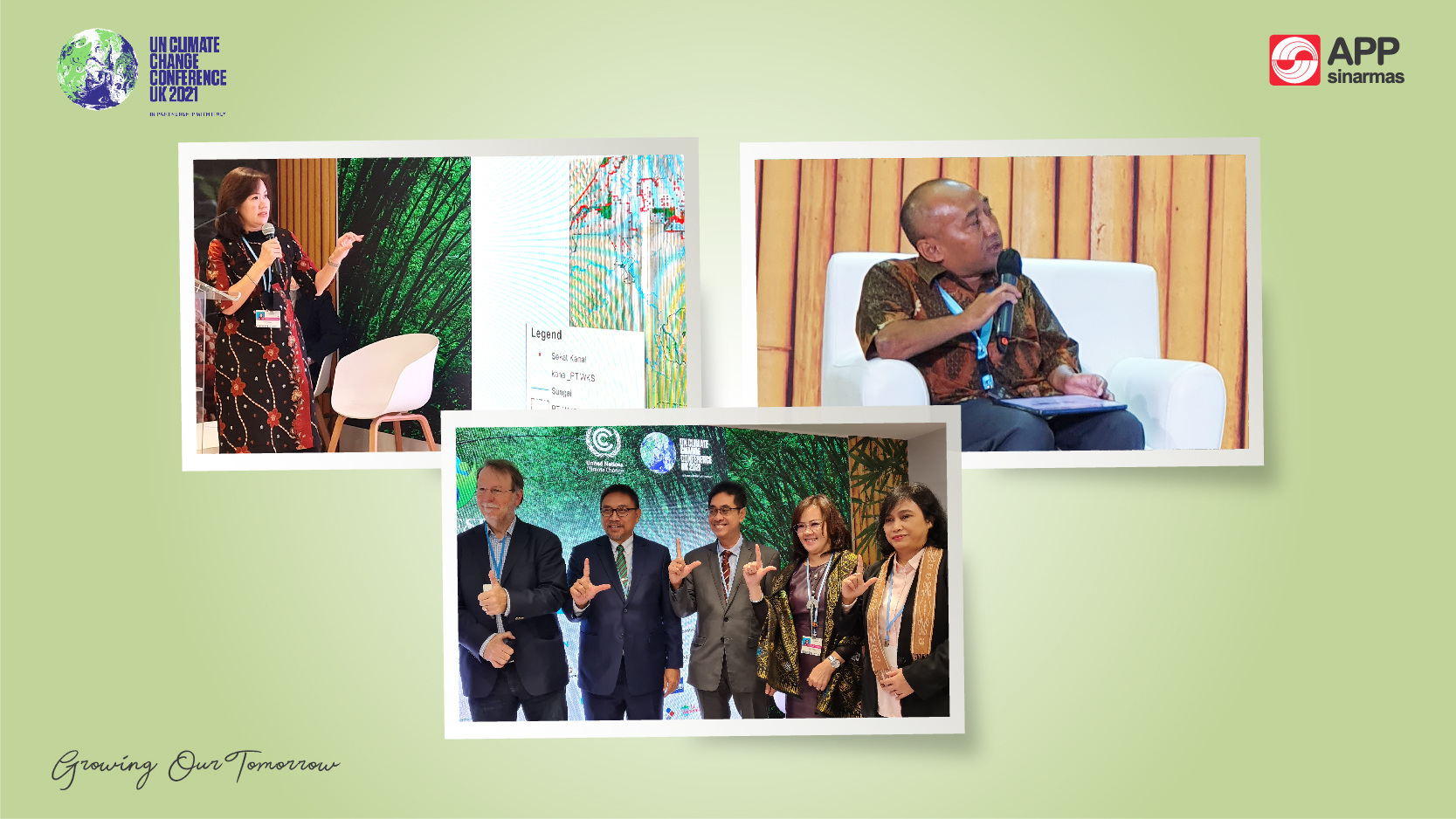
APP Sinar Mas is humbled to take part together with the Government of Indonesia to take actions towards climate change. Through our sustainability programs, we are supporting achievement of Indonesia Nationally Determined Contributions (NDC) across our initiatives around carbon and restoration to social and community.
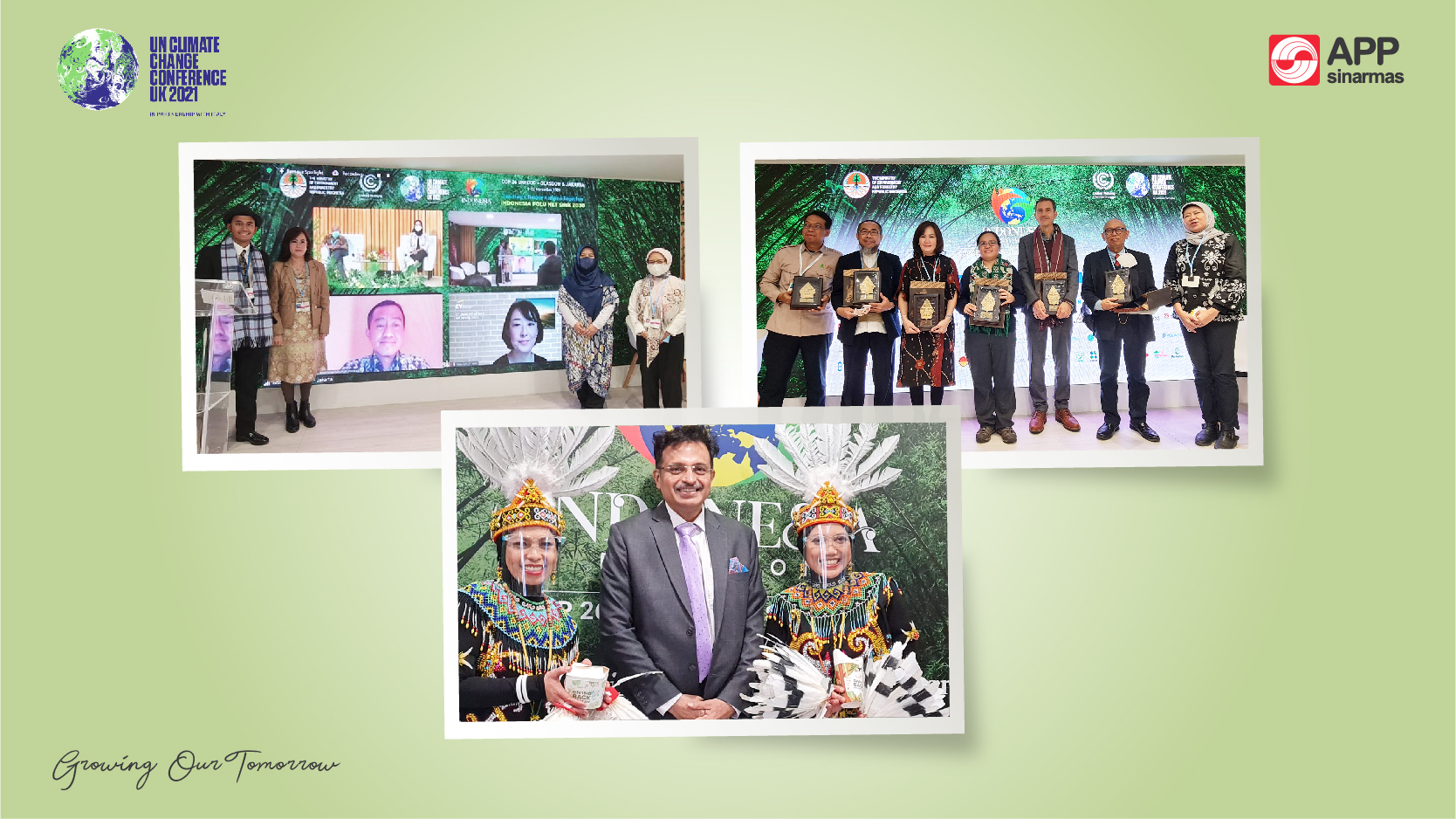
Throughout the COP 26 week, we took the opportunity to contribute to a sea of global experiences on addressing climate change. Missed out our sessions? Head on to the sections below.
Session 1: Leadership on Climate Village Program (PROKLIM) and collaboration opportunities
In all our forest management and protection activities, we believe that the local communities hold a crucial role. Through our Integrated Forestry and Farming System (DMPA) program since 2016, we have engaged and empowered them positively, so that they can contribute to the forest protection efforts as well. Delivered by Agung Wiyono, our Head of Corporate and Social Community Engagement, WATCH our session to find out more about our DMPA program here.
Session 2: Forest restoration: Business perspective in achieving Indonesia Net Sink FOLU 2030
The COP 26 sessions discussed the role of businesses in supporting the government of Indonesia for Forestry and Other Land Use (FoLU) Net Sink in 2030. Elim Sritaba, our Chief Sustainability Officer remarked, “We are committed to moving forward with our partners, to support the Government of Indonesia in pushing for the National Contribution (NDC) target. These efforts are carried out within our Forest Conservation Policy, which certainly requires collaboration with other stakeholders.”
WATCH the session here.
Session 3: Indonesia Net Sink FOLU 2030: Enhancing Carbon Stock from Sustainable Forest Management Practices & Plantation Forest Management | Session 4: South-South Cooperation and Lesson Learned from Indonesia Corrective Actions on Its National Agenda
Sustainable forest management is one of the keys to achieving the target of Indonesia Net Sink FOLU 2030. This present challenges for companies to be more agile in implementing responsible forestry businesses while contributing to efforts achieving the Net Sink FOLU target.
Elim Sritaba, Chief Sustainability Officer APP Sinar Mas stated that APP Sinar Mas and its partners with the support of the Government of Indonesia are committed to achieving the target for reducing NDC. APP Sinar Mas has allocated around 600,000 hectares of its concession for restoration activities. In addition to the Government's Directions, APP Sinar Mas has also made improvements to peat management. For further story, WATCH session 3 here and session 4 here.
Session 5: Indonesia experiences: Measuring CO2 emission reduction from raising peat ground water level to support the sustainable management of peatland ecosystem and NDC achievement
In order to achieve the economic growth without neglecting the importance of conservation and restoration of forest and peatlands, the private sector must continue to pursue a credible data and science-based solutions and demonstrate to the public that it is possible to manage them safely, responsibly, and sustainably.
Together with all stakeholders, the private sector has been able to initiate a roadmap for responsible peatland management. We are committed to our continued improvement efforts and use technology to implement best practices in managing water systems, ultimately to support the government in efforts to reduce carbon emissions. WATCH session 5 here.
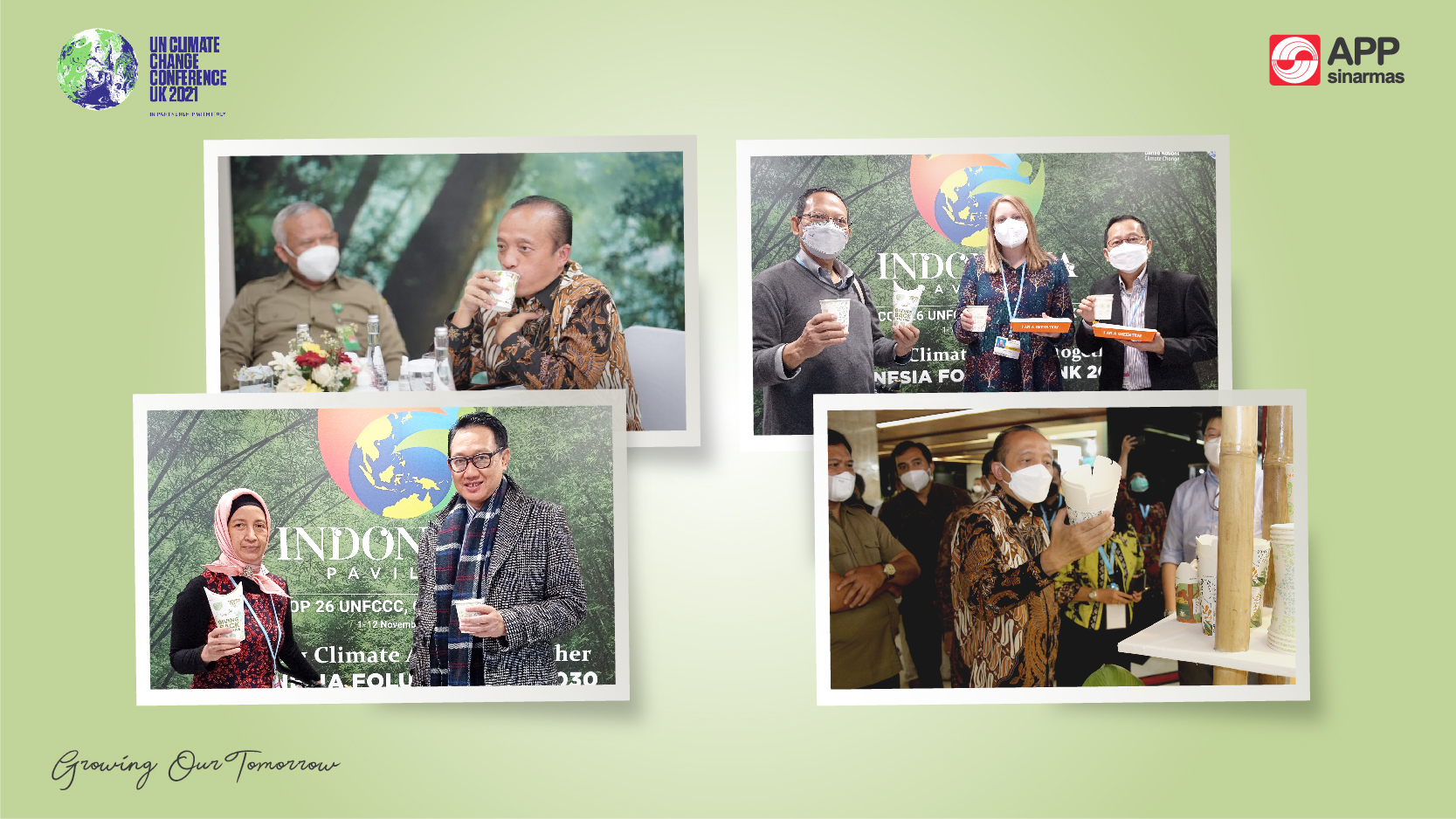
At the COP 26 in Jakarta and in Glasglow, we also provided cups made of Foopak Bio Natura Paper and also exhibited these innovative and sustainable products at the Indonesian Pavilion booths in Jakarta and Glasglow, Scotland.
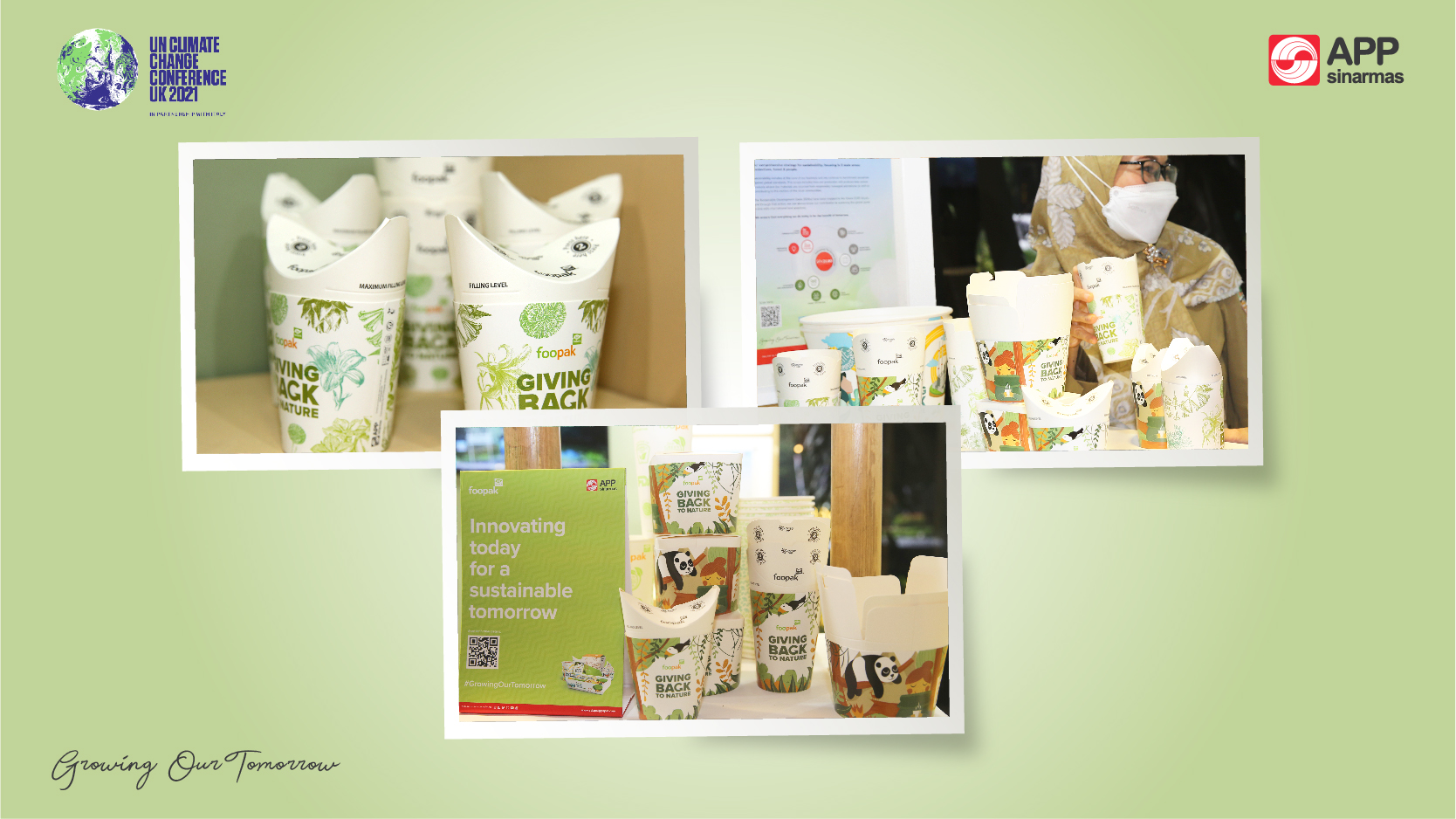
Foopak Bio Natura is an environmentally friendly APP Sinar Mas innovative paper product, which is free of plastic, can be recycled, and can be used as compost for food and beverage packaging raw materials.
***

